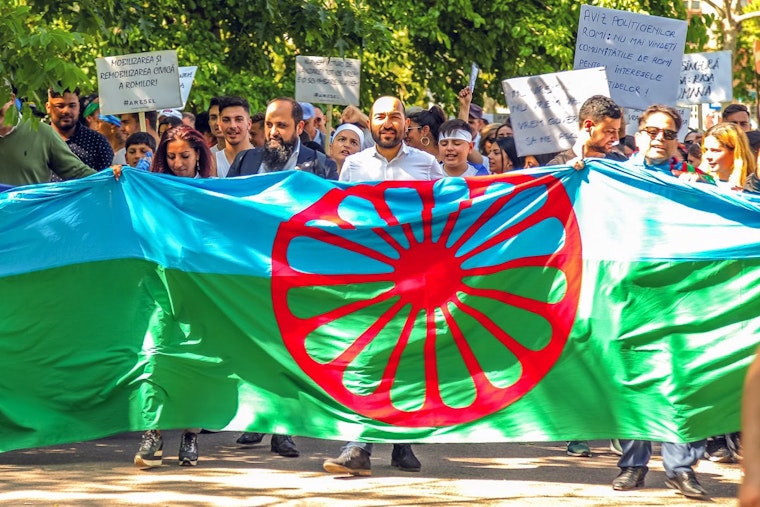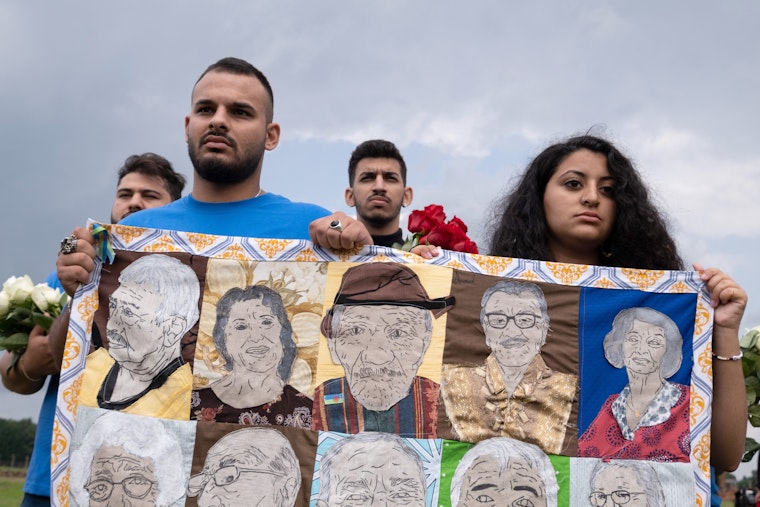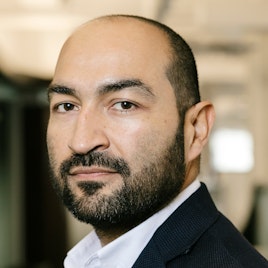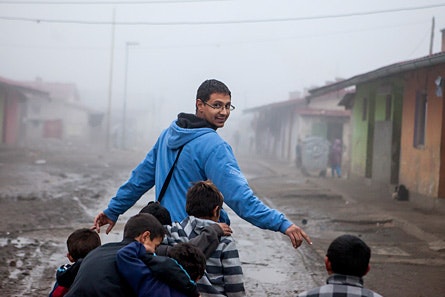A New Roma-led Vision of Power
By Zeljko Jovanovic

For more than three decades the Open Society Foundations have been the leading private funder in the historic struggle to ensure that the estimated 12 million Roma people living in Europe have the same opportunities to thrive as everyone else.
But from next year, Open Society will be taking a different approach—directing its funding through a single, external, and entirely new Roma-led institution—the Roma Foundation for Europe. While Open Society has pledged €100 million in support until the end of the decade, the new Roma Foundation will also raise money from other donors.
So what is this new foundation? And why is it being set up now? First, some background.
Prior to the fall of the Berlin Wall in 1989, European countries paid relatively little attention to the Roma. But the fall of the Wall, and the subsequent eastward expansion of the EU changed that, by opening up the former communist countries of southeast Europe—home to a significant portion of the most marginalized European Roma communities.
The response included the first-ever multinational effort to support Europe’s Roma, through the Decade of Roma Inclusion, launched in 2005 by institutions including the World Bank, the UN Development Fund, and Open Society. Twelve governments pledged to devise groundbreaking policies and allocate public funds to improve the Roma’s living conditions between 2005 and 2015.
Yet, two significant setbacks hampered the Roma Decade. Firstly, once the EU candidate countries from Eastern Europe secured their membership, they no longer felt compelled to demonstrate compliance with human and minority rights criteria for membership which underpinned the vision of a better future offered by the initiative.

Secondly, the aftermath of the 2008 financial crisis, marked by reductions in public spending, crippled the Roma Decade initiatives, despite the best intentions and concerted efforts of a handful of Roma champions in the governments.
The end result was that virtually no progress was made toward ending the entrenched economic and social exclusion of the Roma.
Instead, the political conditions for action deteriorated. From 2008 onward, European politics shifted to the right, due to a range of factors that had nothing to do with the Roma (including the impact of austerity policies, the impact of terrorist attacks, and the surge of migration across Europe’s southern borders).
Against this new political landscape, opportunistic politicians opted to ignore or at worst attack the Roma, further diminishing the chances of the EU Roma policy making a significant difference at a national level.
Throughout all this, Open Society continued as the largest private funder of the Roma cause, first championed by our founder George Soros in the 1990s. Open Society has focused its support on cultivating Roma leadership and participation, while emphasizing pivotal issues such as rights protection, early childhood development, access to public education and health, and Roma culture. Open Society has been promoting Roma civic participation by providing university scholarships, internships, advocacy training, while supporting Roma-led grassroots initiatives. As the European landscape worsened in the last years, OSF’s emphasis on cultivating new Roma leadership became even more pronounced.
Certainly, not everything unfolded as intended; lessons have been learned regarding how sole dependence on external funding can foster over-dependence and diminish the accountability of other stakeholders.
Nonetheless, three points stand firm: Open Society’s support has been fundamental in fostering Roma organizations and advocacy; in elevating the number of educated Roma individuals; and in heightening commitment among both international and national policymakers.
Yet while the legacy of Open Society is unparalleled, it remains crucial for Roma to guide their own advocacy efforts. At the same time, the context has changed so dramatically that pro-Roma advocacy itself needs change as well. And that brings us to the new Roma Foundation for Europe.
Most importantly, the new foundation will bring a new and higher scale of Roma-led vision, strategy, expertise, and networking that not only acknowledges the challenges confronting the Roma but also builds on our strengths and potential.
These strengths include Roma demographics in an aging Europe, particularly in Eastern and Southern Europe where populations are already in decline. Together, 12 million Roma represent future workers and future voters—underscoring the importance of viewing Roma-related initiatives not as charitable spending, but as public investments.

We will also aim to leverage the Roma’s extraordinary record of resilience. Our people survived medieval persecution and we survived the Holocaust. Today we endure acts of violence and cultural subjugation without resorting to violence and armed conflicts. Our communities also adapted to the life in almost every European country, language, culture. The new foundation aims to harness these qualities, mobilizing the community’s brightest attributes.
And our bold ambition will extend beyond the Roma. We will showcase solutions for the increasing shortage of labor force, contributing to Europe’s economic recovery and green and digital transition. The Roma Foundation for Europe will promote cohesion, mutual respect, and solidarity in societies that are becoming dangerously culturally polarized. We will work with Roma communities to break down the structures of prejudice, corruption, and repression that enable the exploitation of the Roma voters.
The Roma Foundation for Europe will neither supplant existing local initiatives nor overshadow other entities pursuing similar objectives. It cannot take on the roles of governments, international organizations, businesses, and the media—all of which are pivotal for systemic change. Instead, the Foundation will collaborate with all those who share our vision: to lay the foundation, if you will, for a rejuvenated Europe that champions equality, justice, and fairness for all its citizens.

Until February 2024, Zeljko Jovanovic was director of the Roma Initiatives Office.
